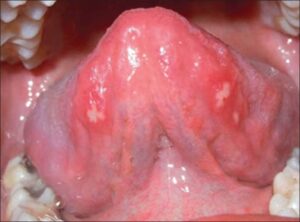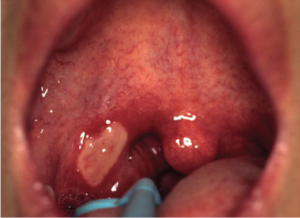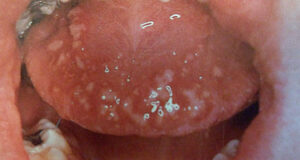Mouth ulcers
Definition
Mouth ulcers are painful sores that appear inside the mouth. They should be differentiated from cold sores, which appear on the lip, and they are caused by herpes virus. Mouth ulcers are often called apthous ulcers.
Causes
There are several causes for mouth ulcers. If an ulcer persists for more than 2 weeks in your mouth, you should see your OMFS surgeon, as mouth cancer typically presents in the form of an ulcer. Ulcers can be caused from trauma (sharp teeth or dentures). They resolve when the traumatic factor is eliminated. If you have a number of mouth ulcers, and they keep coming back, then these are most likely apthous ulcers. The cause of apthous ulcers is unknown, but they are more common in children and young adults. Sometimes, vitamins’ deficiencies or anaemia is linked to mouth ulcers, and occasionally gastrointestinal diseases like Chrons’ can manifest with mouth ulcers. You should inform your OMFS surgeon if you have ulcers in other parts of your body (i.e. genitals)
Types of apthous ulcers
There are 3 types of apthous ulcers: Minor, Major and herpitoform.
Minor ulcers are the most common. They come in clusters and last for 1-2 weeks. Their size is usually around 5mm.

Major ulcers are larger (occasionally over 10mm) and can take longer to heal (usually over 3 weeks). They are very painful. You usually get 1 or 2 each time.

Herpitoform ulcers can be up to 100; they are very small, very painful ulcers and can last up to 2 weeks.

Any ulcer that lasts more than two weeks should be investigated to exclude underlying mouth cancer
Treatment
Treatment depends on the cause. Apthous ulcers usually resolve by themselves, but in cases of persisting major ulcers, a steroid-based mouthwash might be beneficial.
Traumatic ulcers will heal after the traumatic cause is removed. Deficiency-related ulcers will improve with appropriate supplementation. Unfortunately there is no preventive treatment for apthous ulcers.
